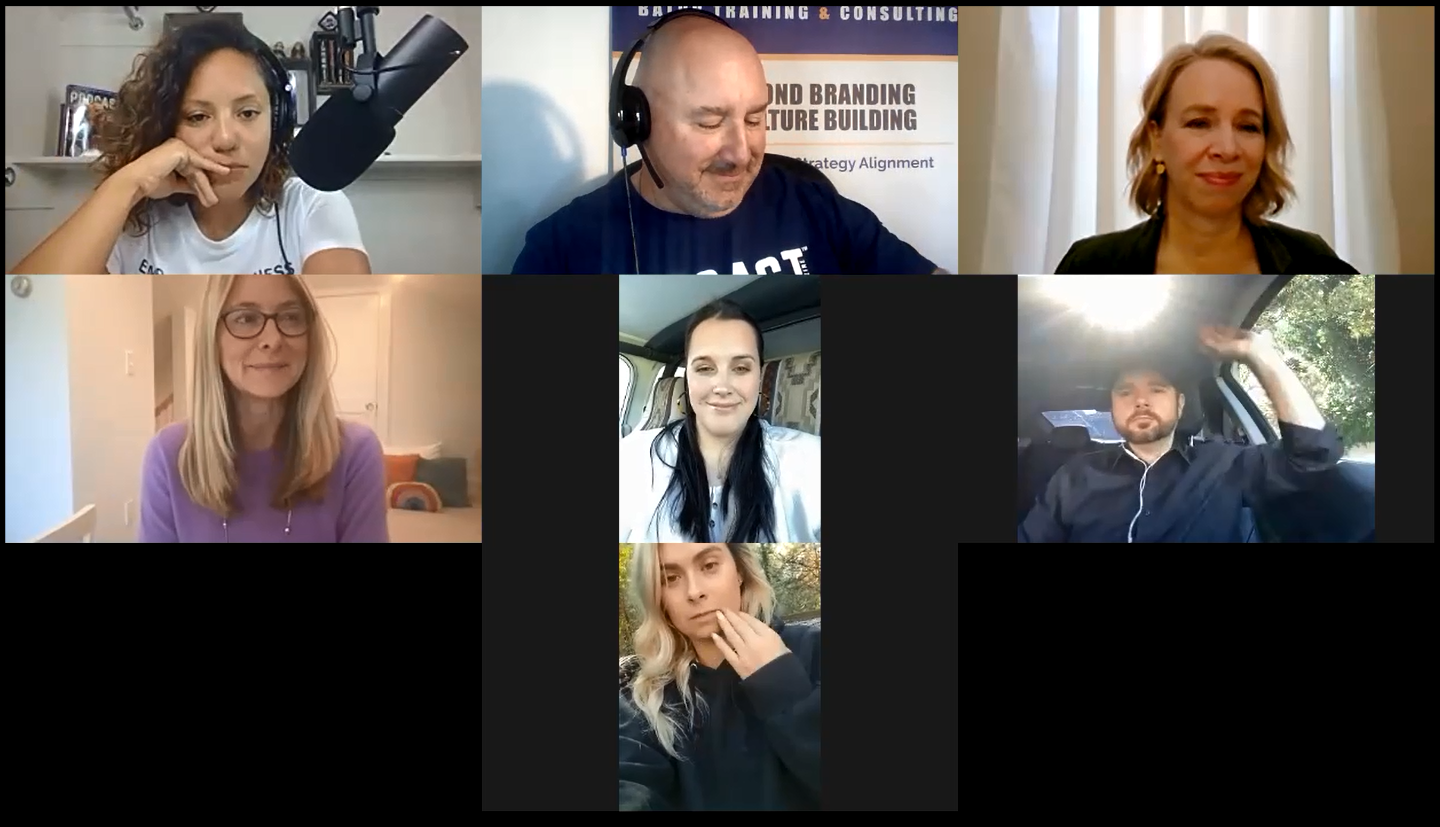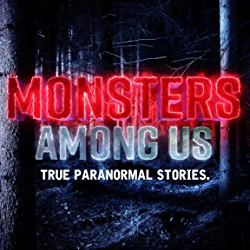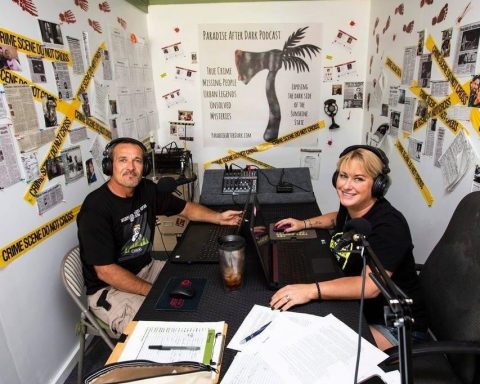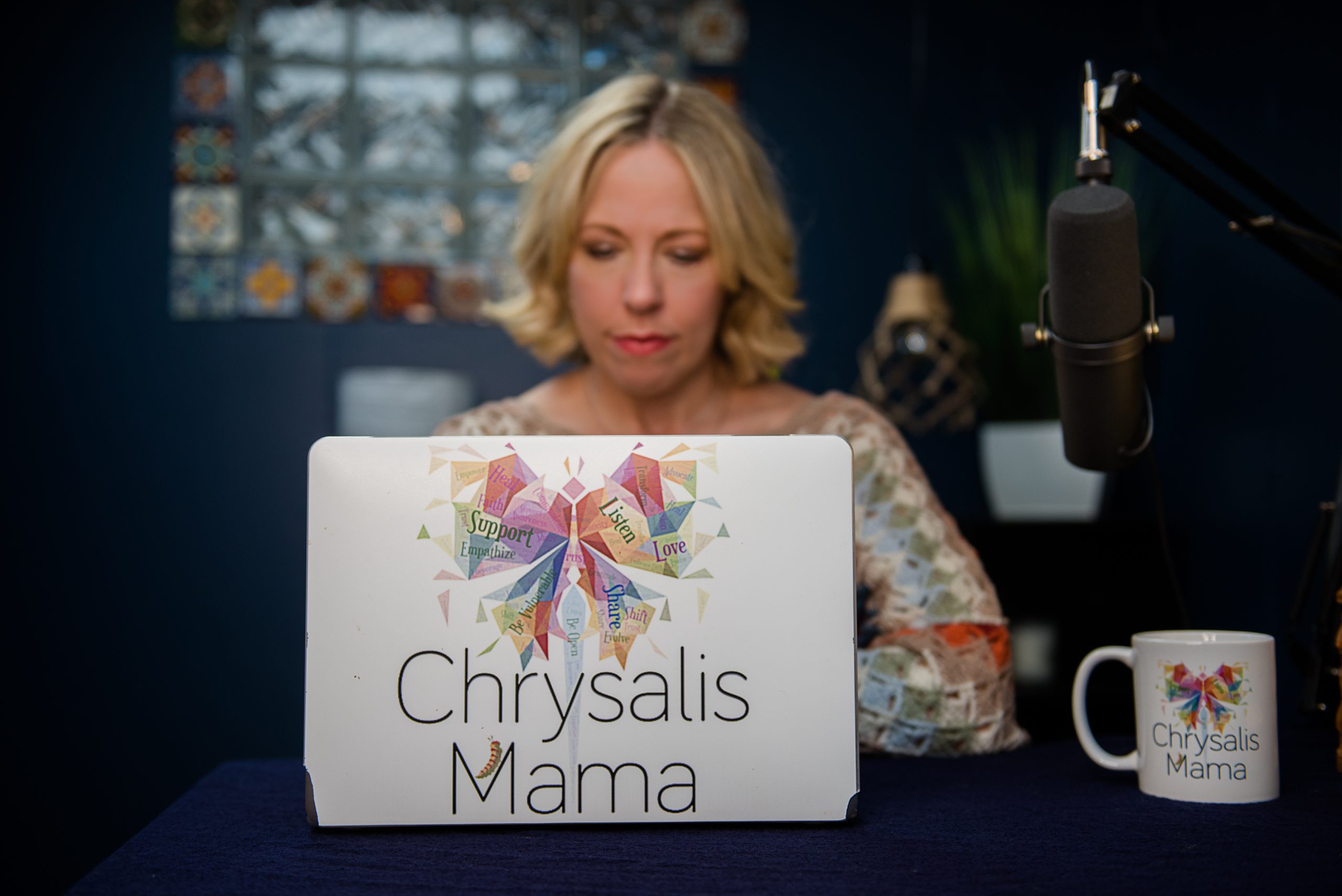There has been an ongoing discussion and desire within Podcast Magazine® for months now about going a little deeper in our discovery. The Beyond the Microphone features are great, but what if we were to take an even deeper dive into the world of podcasting to answer questions like…
Why do podcasters do what they do? How do they listen to podcasts? And so much more.
Having covered the True Crime category for two years now, I wholeheartedly believe it is one worthy of an intriguing deeper dive. So, I decided to hand-pick a panel of true-crime podcast hosts from previous Beyond the Microphone features to ask them these types of questions.
These panelists host podcasts of a more serious nature. While all we have covered in the previous 24 issues of this magazine are of high quality, some also serve a specific purpose in society beyond entertainment. Some keep cases alive, help find missing persons, and allow us to learn about issues in order to make positive change—those are of particular interest for this deeper dive.
With that, following are the panelists chosen:
Margot, host of Military Murder
Lori, host of The Unlovely Truth
Anna-Sigga, cohost of Anatomy of Murder
Kenzi and Holly, cohosts of Crimeaholics
Jake, cohost of Strictly Stalking
Each joined me for a panel discussion that lasted nearly three hours and offered a wealth of insight, lending itself to a special series every true-crime aficionado is sure to love.
This is the first of a four-part series based upon the initial question posed to the panel:
Why do you “true crime?” (Creating a new verb here, if you will.)
Anna-Sigga of Anatomy of Murder leads things off: “It’s an extension of my life’s work. I come at this as a prosecutor, which I was for 21 years, 16 in homicide. While I reached the endpoint of that career, probably due to stress levels more than anything, I wasn’t done with my work. I look at the podcast as a deep dive into content that I care very much about.”
Conversations Anna had with her now co-host Scott Weinberger, former Deputy Sheriff, about the things they both care about motivated the pair to create the podcast. “I want listeners to care about the people involved in these cases—the victims, and those working on their behalf. There is much more to true crime than what you read in a headline or what you think you are watching or listening to it for. Podcasting really gives us that. It gives us a little less of a controlled format to talk about a case at length. You can produce an episode that is 30 minutes or three hours. For me, it was a way to talk through issues that I think are important and that others would likely want to know about.”
Lori of The Unlovely Truth echoed the sentiment: “Working as an investigator with the families of victims provides a whole different perspective on things… it’s so much more than what most people see of the majority of cases in the media. I wanted to help people tell the stories that maybe the media was ignoring. I don’t cover many cases that have received a lot of media attention. I try to pick underserved populations and say, ‘Let’s get your case out there.’ Hopefully, someone will listen who knows something, and that person will come forward.
“My podcast also has a bit of a faith component, because that’s who I am. We discuss a lot of topics that you don’t talk about with your ‘church friends.’ We talk a lot about redemption and forgiveness, too, though. I even had an episode on vigilantism.
“I want people to wrestle with thoughts and ultimately decide what’s okay and what’s not. Maybe that will spark something [in my listeners], and they decide to do something to make a difference. I try to educate people, explaining that they don’t have to go out and be a PI like me. There are small things you can do to make a difference. Just sharing podcasts that are victim-centric helps… and not just mine, but others’, too. Getting the word out there helps people see that not all these cases have reached resolution. There are so many that still need help.
“Or maybe you have a passion for working with kids. There are many kids who need good role models. You can help to break cycles, because a lot of times, multiple generations of the same family are involved in criminal activity. Let’s get someone to step in and see if we can break those cycles. Let’s get some education out there, so people know where they can help.
“I want to be able to reach more people than I can as a PI. I love that work, and I love working with those families, but I can only work so many cases at once. If I can influence people to spread the word and get out there and do what they can, then hopefully, I can make a bigger impact. That’s why I do the podcast.”
It became clear early in the panel discussion that all participants share the belief that true-crime podcasts serve a real purpose in society. They also feel a duty to keep cold cases alive… to learn from them, and to highlight issues for positive change.
The hosts of Crimeaholics definitely contribute to that purpose. Their podcast is an example of how some start as pure entertainment but evolve into something that is truly a service to society.
Kenzie explains, “All of us here seem to have the same mission when it comes to why we do what we do.”
She speaks to one of her specific intentions as a criminal justice student: “It’s to be of service to law enforcement. They are so overworked, and they don’t have enough help. The biggest shock to us is how much help they need. We have seen such an impact from our ‘Missing Mondays’ segment, which keeps the names of missing people out there.
“When Holly and I first started, we were looking for a hobby. But the more we researched, the more we realized that there is a real problem out there… a major problem. We wanted to make sure we are using our voice for the right reasons, not just for entertainment. There’s a purpose to our show. There are people out there who are missing, and people want to bring their loved ones home. We stand by our tagline—to be the voice for the voiceless. Our main goal is to bring awareness to different crimes and be a voice for those who don’t have one.”
Kenzie also addresses her fellow hosts of serious true-crime shows out there: “Even if your show is small, and your voice is only heard by 3,000 people, that’s a big deal. That’s 3,000 more people hearing about someone’s loved one who is still missing.”
Holly continues: “I have always been super-passionate about helping missing people. That’s why I think our ‘Missing Mondays’ work so well. A couple of years ago, I made a New Year’s resolution to change someone’s life. I remember at the end of that year that I hadn’t done it yet.
“I’m a mom, so I of course have impact on the lives of my kids, but I wanted to do more than that. Now that the podcast is established, I work directly with families. I’m helping the best that I can. I am actually changing someone’s life and making an impact like I always wanted to do for somebody, and now, it’s become multiple somebodies.”
We segued to Margot from Military Murder by joking that she wouldn’t know anything about being a mother.
“No, definitely not. I just have three little girls who love me very much and call me ‘mom,’” Margot laughs.
“Growing up, I wanted to be like Anna-Sigga here. I’m a military veteran. I recently left active duty and transferred over to the reserve side to run my business and care for my three daughters. I’m also a military lawyer and now a reserve JAG [Judge Advocate General].
“My purpose in creating Military Murder is to raise awareness of the issues plaguing service members and veterans, be it military life, long separations, divorce, mental-health issues, domestic violence, suicide, or sexual assault. These are all things that people don’t really like to talk about in terms of the military.
“I created a true-crime podcast because within the context of True Crime, every topic seems more acceptable. Because I am a true-crime consumer, I wanted to tell the stories that are often forgotten or buried in news articles.
“I used to represent victims of sexual assault in military court marshals. One of the things many of my clients would say was, ‘I can’t believe this happened. I can’t believe a military person did this to me.’ For me, we’re all just human. We’re all just a subsection of society. With my podcast, I remind everyone to remain vigilant regardless of who you are around, not just military people. The podcast happens to focus on the military, but the same things happen in churches, schools, the boys’ club down the street… as an advocate for victims, I felt a need to start telling these stories.
“It reminds investigators that we’re watching, especially for missing persons in the military. Back in the day, when someone was believed to have simply gone AWOL, nobody would look for that person. Now, that is vastly different. If someone goes missing, we sound the alarm, so that everyone on and off the installation knows who is missing.
“The podcast has been met with a lot of positivity. Victims’ families want their stories to be told. Some wonder, ‘Why was my story never important enough to tell?’ Now, they have Military Murder as an avenue to feel heard.”
Military communities are basically cities in and of themselves. Being a military wife herself, Holly of Crimeaholics lives in one of those communities today.
In true “ladies first” fashion, Jake, host of Strictly Stalking and the only male on the panel, chimes in last:
“I’m compelled by what each of you do,” he begins. “Why I ‘true crime,’ and why Jaimie [co-host of Strictly Stalking] and I got into this industry comes down to a shared fascination with true crime in general. We didn’t know anything about stalking. We only knew what we grasped from TV and film. I’m a film and TV producer, and Jaimie is a casting director. So, we come from the entertainment side of all of this, which is sort of ironic, given the ‘victims’ advocacy’ role we’ve had to play. Many of our guests end up becoming advocates because they feel they don’t get the support that they need through the law. There are so many misconceptions. People don’t know how difficult it is to get a restraining order.
“By giving guests a platform, we provide an amazing, eye-opening experience not only for our listeners, but for ourselves, as we attempt to understand the gravity of this problem especially in the cyber world. During COVID, stalking cases, especially cyber, shot up exponentially. For me, the experience has opened my eyes to the power of a podcast, and ultimately, to the role that all of us on this panel understand—to bring justice, or a voice, to people who may have not otherwise had the opportunity to speak up. Hopefully, we inspire change, if not resolution or justice.”
No doubt, many eyes have been opened thanks to true-crime podcasts. It’s also clear that many share in the belief that while the True Crime Category is entertainment, it serves a much greater purpose in society. And again, that’s precisely why these professionals, and so many others, “true crime.”
Coming up next in our deeper-dive series with our true-crime panel: How Do You Podcast?
February 2022 Issue













